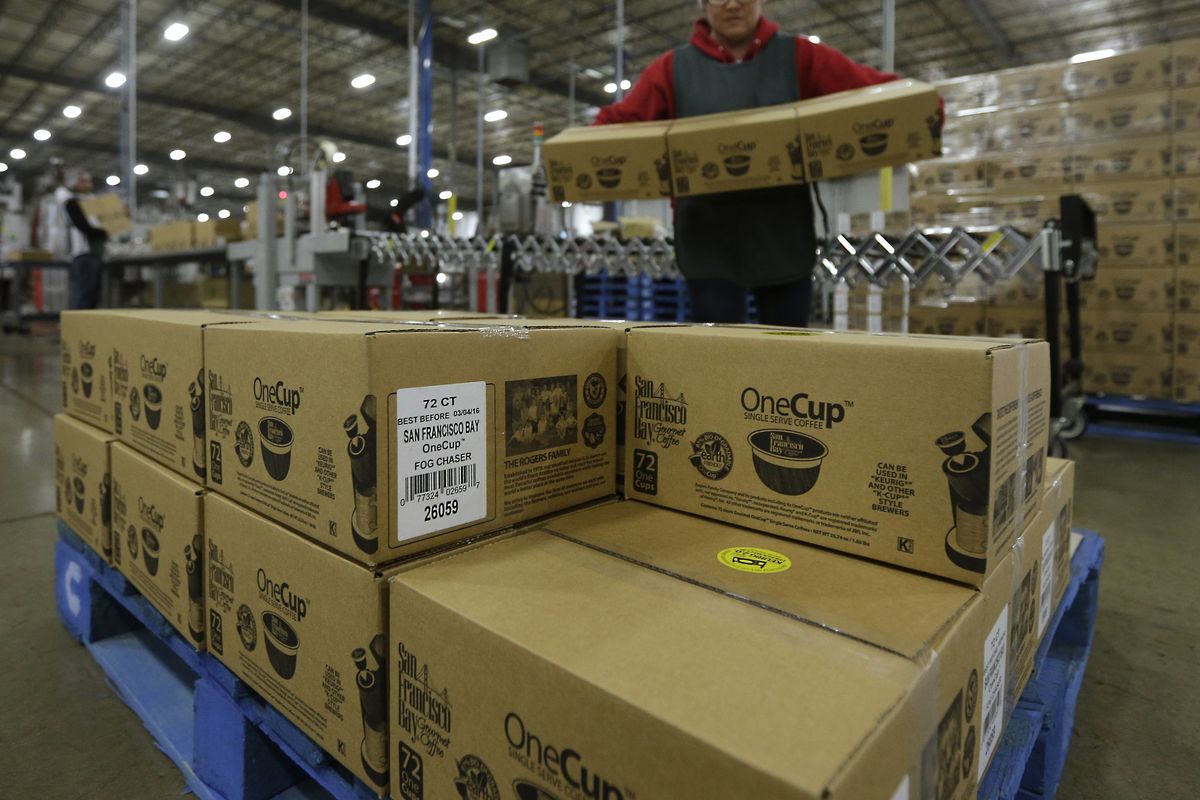Rivals, conservationists target Keurig coffeemakers

LINCOLN, Calif. – One measure of how heated the environmental battle has become over coffee giant Keurig Green Mountain’s $5 billion-a-year, single-serve plastic pods is how often the company’s opponents resort to galactic comparisons.
Keurig, the single-serve coffee industry’s leader, produced enough plastic coffee pods last year to circle the earth more than 10 times, according to one analyst’s estimate, often cited by Keurig’s critics. A YouTube parody depicts aliens that look like the company’s plastic pods invading Earth.
After the company introduced a new coffeemaker in time for Christmas that only allowed its pods, the battle heated up again, spawning parodies featuring Star Wars-style rebels challenging the “Keurig Empire” by hacking a machine to accept more environmentally friendly pods made by rivals.
More than a dozen coffee manufacturers and other businesses are suing over what they claim is Keurig’s unfair efforts to shut out rival pods.
“We’re under siege,” said Jon Rogers, patriarch of a California-based family coffee company whose soy and corn byproduct-based pods are among those that the new Keurig machine is engineered to reject. “It’s a matter of life and death for me.”
Keurig says the fight boils down to how to make the best cup of coffee, and the company has pledged to come up with a fully recyclable pod of its own by 2020. The throw-away containers, both by Keurig and its competitors, allow coffee drinkers to get a quick cup without messy grounds.
One reason Keurig is locked into plastic right now is that nothing else seems to keep the coffee inside the pods fresh like plastic does, said Monique Oxender, the company’s chief sustainability officer. If this sounds like a tempest in a coffee cup, it may be that you haven’t yet gotten a single-serve coffee-brewer for Christmas, which analysts say is how half the users get their start.
Keurig’s product is reshaping the $40 billion U.S. coffee industry. Its annual report said it accounted for 30 percent of retail coffee sales last year. More than 1 in 5 U.S. households had one of Keurig’s single-serve coffee makers.
“In their current form, they’re an environmental disaster,” said Kevin Knox, a coffee-industry veteran and analyst who publishes and blogs on coffee and the global coffee trade.
The controversy heated up when the company introduced its Keurig 2.0 last Christmas. Consumers complained about having to use only Keurig-affiliated brands, and environmentalists fumed about the steady stream of plastic pods to U.S. landfills.
Rogers, whose adult children help him run Rogers Family Co. in Lincoln, California, isn’t waiting for the lawsuits against Keurig to work their way through courts.
His family recently produced a small gizmo it calls the “Freedom Clip,” which they say lets consumers rig a Keurig 2.0 coffee machine so it accepts rival brands.
Rogers mails them for free to any consumer who asks.